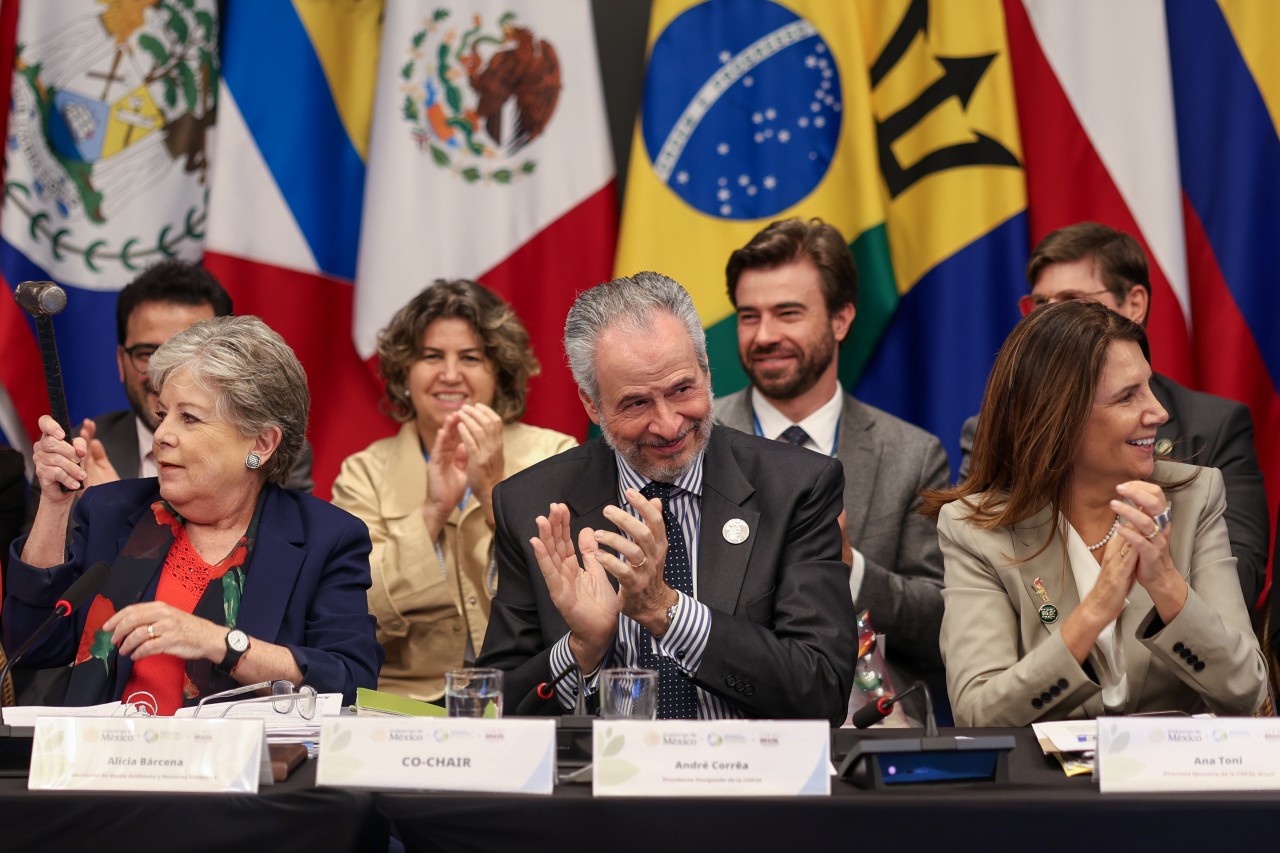In a declaration, Latin America reaffirmed its regional support for the COP30 conference in Brasil
Document signed at a meeting of Environment Ministers in the region highlights commitment to the implementation of the Paris Agreement and regional cooperation

By COP30 Presidency
On Tuesday, 26 August, Latin American and Caribbean countries approved a declaration of support for COP30 in Brasil and the conference’s priority agendas. Signed during a meeting of environment ministers in Mexico City, the document highlights the region’s commitment to implementing the Paris Agreement and its leadership in tackling climate change.
“We express our full support to the COP30 Presidency and its vision of implementing the Paris Agreement through accelerated, inclusive, and ambitious action,” states the document signed by 22 countries. “We embrace this historic opportunity to present our region as a model of unity, leadership, and commitment to environmental action.”
The two-day meeting launched the consultations announced by the COP30 Presidency last week in the sixth letter from COP30 President, Ambassador André Corrêa do Lago. Discussions were held on issues including climate finance, adaptation, energy, and a just transition. Representatives of multilateral organizations and civil society also joined parts of the sessions.
“President Lula, who throughout his life has fought for social justice, is now convinced that the climate agenda is fully linked to the social agenda, and of the danger that climate change may undo the social progress countries have achieved with enormous sacrifice,” said the Ambassador at a joint press conference with Mexico’s Minister of Environment, Ms. Alicia Bárcena.
In the declaration, the countries affirmed their commitment to “making the voice of Latin America and the Caribbean a single voice at COP30 on all issues of common interest to our region.” They also reinforced their commitment to multilateralism and global solutions that strengthen solidarity among regions.
“Latin America and the Caribbean are united in advancing a just, orderly, and equitable transition that leaves no one behind,” said Minister Alicia Bárcena at the press conference. “A transition that respects our national realities, our sovereignty, and our self-determination.”
The countries expressed their support for the work of the COP29 and COP30 Presidencies in developing the Baku–Belém Roadmap, which aims to mobilize USD 1.3 trillion in climate finance. According to the declaration, the report, which will be presented at COP30, should encourage the mobilization of resources from diverse and innovative sources, such as the Tropical Forests Forever Fund (TFFF). The TFFF will reward developing countries for conserving and sustainably using their tropical forests.
Latin American and Caribbean ministers stressed that the 2035 Nationally Determined Contributions (NDCs), due in September, are "indispensable to keeping the goals of the Paris Agreement within reach." They added that delivering them requires action across all sectors, means of implementation, and international cooperation.
The declaration further emphasizes that “adaptation is a collective priority for the region,” with the highest level of political importance. It also reaffirms the commitment to advancing the issue during COP30, including the Global Goal on Adaptation (GGA), and to implementing and updating national adaptation plans.
The countries pointed to the need to transition away from fossil fuels in a manner consistent with sustainable development, acknowledging the economic, technical, and environmental challenges of this process. The document highlights a recent ruling by the International Court of Justice that countries have obligations under international law to address climate change.
Among other points, the declaration underscores the role of Indigenous Peoples, local communities, and Afro-descendants as guardians of marine and terrestrial ecosystems, and the importance of nature-based solutions. It also highlights the commitment to climate action that respects and protects human rights.
